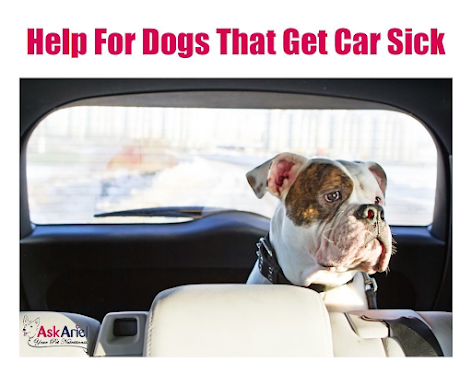Does your dog get sick every time you go in the car? While some dogs love going for rides, others get nervous and anxious. Car sickness can cause nausea, vomiting, crying, restlessness, and loss of control over bodily functions. Causes can be psychological, inner ear balance-related and digestive (dog has a sensitive stomach and/or reflux.)
Physical: Motion sickness is caused by a disrupted sense of balance. A dog uses the inner ear for balance and puppies are more likely to get car sick than adults because their ears aren't fully formed or mature. The motion from a car ride can be just enough to cause a dog with a sensitive tummy to throw up. Pets with acid reflux are especially susceptible.
Psychological: Pets may associate going in the car with a traumatic event (e.g. going to the vet) or just feel unsettled leaving the comfort of their home. Some pets just have a nervous temperament and car rides are something new to which they need to adjust.
Here are a few things you can try to make your dog’s car ride more comfortable. For many pets, calming their anxiety along with stomach and digestive support before getting into the car often does the trick.
- Fresh air - Cracking a window can greatly help
- Happy Paws Drops - Give your pet our help extract drops about 20 minutes before you leave
- Digestive Support - Give your pet a highly digestible snack an hour before along with Power Probiotic and Soothing Digestive Relief (Gastro ULC if your pet has acid reflux) to settle their stomach. Some snacks that work well for pets: raw freeze-dried novel protein food and treats such as Vital Essentials or Stella & Chewy's rabbit.
- Have treats on hand - Reward your pet during the ride
- Crate - Some dogs find comfort and security in their crate
- Talk to your dog in a soothing, reassuring voice
- Slowly introduce car rides by starting with 5 minutes around the block and gradually increasing the frequency.
Car sickness can be challenging but there is hope. Many times addressing both the psychological and physical aspects can help pets feel better.

